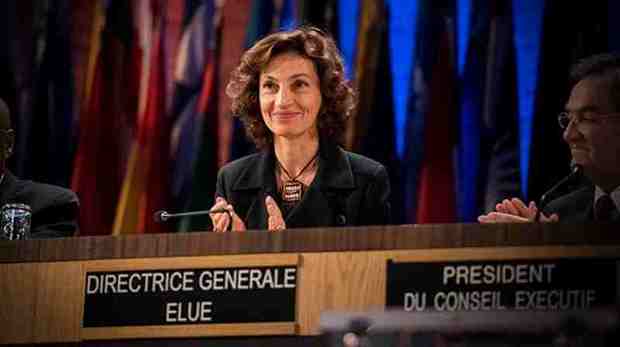Connected Learning Program from India to Get UNESCO Prize

Audrey Azoulay, Director-General of UNESCO. Photo: UNESCO
The 2017 UNESCO King Hamad Bin Isa Al-Khalifa Prize will be awarded to the CLIx program (India) during a ceremony at UNESCO Headquarters on 7 March. Founded in 2005, the Prize recognizes outstanding projects that make innovative use of Information and Communication Technologies (ICTs) in education.
Audrey Azoulay, the Director-General of UNESCO, and Jawad bin Salem Al Arrayed, Deputy Prime Minister of the Kingdom of Bahrain, will open the award ceremony.
This year’s edition is dedicated to the “use of information and communication technologies (ICTs) to increase access to quality education,” with a view to promoting innovations in leveraging ICTs for achieving the United Nations’ Sustainable Development Goal for education, SDG 4.
[ Fault Lines: A Research Report on the Quality of Education in Delhi Schools ]
The Connected Learning Initiative (CLIX) program developed by the Tata Institute of Social Sciences, leverages ICTs to improve the chances of students from underserved communities to access secondary and higher education in India.
It provides high quality platform-based, blended learning experiences in three languages: Hindi, Telugu and English. So far, the programme has reached 478 State high schools, 1,767 teachers and 46,420 students in four Indian States.
[ 50 Volunteers Wanted for New Education Campaign in Delhi ]
Through a multi-stakeholder partnership, the programme brings together universities, foundations and local governments to tackle the challenge of improving the quality of education, particularly in STEM education.
It has designed a blended teaching and learning process that is accessible with basic digital devices and low internet connectivity. The blended learning is supported by quality open source digital educational materials developed in cooperation with respective partners.
Over 15 blended learning modules in mathematics, science, English and digital literacy in three languages are offered. Data on online learning has been tracked and processed to assess the project results and promote evidence-based decision-making for national and local governments.
The programme also prioritizes teachers’ engagement and professional development with appropriate incentive mechanism.













